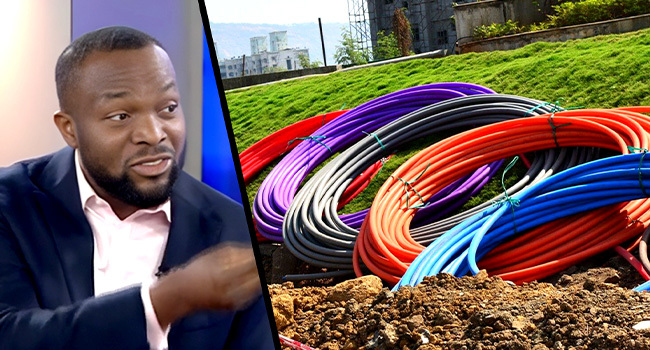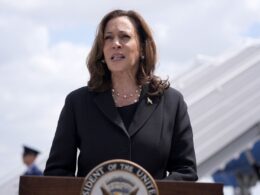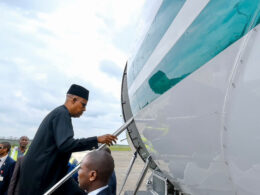Nigeria has launched plans to invest $2 billion in expanding its fiber optic network, aimed at accelerating its digital economy and enhancing nationwide connectivity.
Nigeria- This bold initiative was announced by Bosun Tijani, Nigeria’s Minister of Communications, Innovation, and Digital Economy, at the G20 Digital Economy Group (DEWG) meeting in Maceio, Brazil.
According to him, the expansion will further bolster the nation’s capacity to participate in the global digital economy, stressing further the critical role of connectivity in driving economic diversification and shared prosperity.
Tijani noted that the investment came as the country seeks to replicate the success seen in rural China, where he said farmers have leveraged digital platforms to reach consumers directly, bypassing intermediaries and increasing their earnings.
“We are inspired by farmers in rural China, where traditional markets often offer limited opportunities and returns…but are now embracing digital platforms to connect with consumers. Through live-streaming on social media, these farmers are showcasing their fresh produce, sharing their stories, and building trust with buyers across their country bypassing intermediaries and commanding better prices and returns.
“To this end, with the support of the USTDA, the European Union and other partners, we are preparing a $2billion investment in a 90,000km fibre optic network, to extend our existing backbone from 35,000 to 125,000km. With this investment, we are seeking to boost the opportunities offered by the digital economy to grow our economy while empowering our people to further participate meaningfully in the global economy.
“To ensure the benefits of our existing investment in digital infrastructure provides universal benefits for all, we are prioritising digital skills and literacy by investing in the world’s largest technical talent acceleration programme (3MTT) and committing to ensuring 70% of our people are digital literate by 2027,” the minister said.

At the heart of this project is a substantial expansion of the existing fiber optic infrastructure. The current network spans 35,000 kilometers, but under this new plan, it will grow to 125,000 kilometers, covering more of Nigeria’s vast and diverse landscape. The expansion is expected to boost connectivity in both urban and rural areas, enhancing digital access for businesses, communities, and individuals alike. The expansion is backed by the United States Trade and Development Agency (USTDA), the European Union (EU), and other international partners, demonstrates a collaborative approach to Nigeria’s digital transformation.
The broader vision behind this investment is also rooted in aspiration to diversify its economy by leveraging the digital economy. According to Tijani, expanding the fiber optic network will enable more Nigerians to participate in the global digital marketplace, which is critical for economic growth and job creation. He emphasized that connectivity is not just about access to the internet but about creating opportunities for businesses to innovate and for citizens to improve their livelihoods by integrating into the global economy.
One of the key inspirations for digital transformation is the success seen in rural China, where farmers have leveraged digital platforms to bypass intermediaries and sell their produce directly to consumers. This approach has allowed them to command better prices and increase their earnings, all while maintaining control over their supply chains. By embracing digital tools like live-streaming and social media, these farmers have created trust with buyers across the country and expanded their market reach.
With hopes to replicate this success story by providing its farmers, entrepreneurs, and small businesses with the infrastructure and tools needed to access digital markets. This model of rural economic empowerment is expected to have a transformative impact, especially in Nigeria’s agricultural sector, which remains a cornerstone of the country’s economy.
In addition to expanding the physical infrastructure, Nigeria is investing heavily in digital literacy and skills development to ensure that its citizens can take full advantage of the new digital opportunities.
Tijani announced that the government has launched the world’s largest technical talent acceleration program, known as the 3 Million Technical Talent (3MTT) initiative. This program aims to make 70% of Nigeria’s population digitally literate by 2027. The 3MTT initiative will train millions of Nigerians in various digital skills, preparing them for careers in the rapidly evolving technology sector.
Moreover, the government has set up the National Broadband Alliance to coordinate efforts among stakeholders, including private sector players, international organizations, and local communities. This alliance aims to foster collaboration in the rollout of broadband infrastructure and ensure that the benefits of increased connectivity are shared across all segments of Nigerian society.
The anticipated economic benefits of this investment are immense. By significantly improving internet connectivity, Nigeria can enhance productivity across various sectors, including agriculture, education, healthcare, and commerce. It will also help foster innovation, with startups and tech companies having better access to global markets and opportunities. For instance, better connectivity could enable Nigeria’s vibrant tech ecosystem to scale more effectively, attracting foreign investments and creating high-skilled jobs.
Furthermore, expanding the digital economy aligns with Nigeria’s broader strategy of reducing its reliance on oil exports and transitioning toward a more diversified, sustainable economy. As Nigeria becomes more integrated into the global digital economy, it stands to benefit from increased foreign direct investment (FDI), greater access to global markets, and enhanced competitiveness on the world stage.
One of the critical aspects of this investment is its focus on digital inclusion. The government’s commitment to expanding fiber optic connectivity to rural and underserved areas ensures that all Nigerians, regardless of their location, can benefit from the digital economy. This approach aligns with global best practices for inclusive growth, ensuring that marginalized communities are not left behind in the digital age.







![[pICTURES] Residents butcher another stranded Whale in bayelsa beach Residents butcher another stranded Whale in bayelsa beach](https://reportafrique.com/wp-content/uploads/2024/06/1D7F5C90-1593-4352-A3B0-9E92DAE8E1A9-260x195.avif)


Join our Channel...